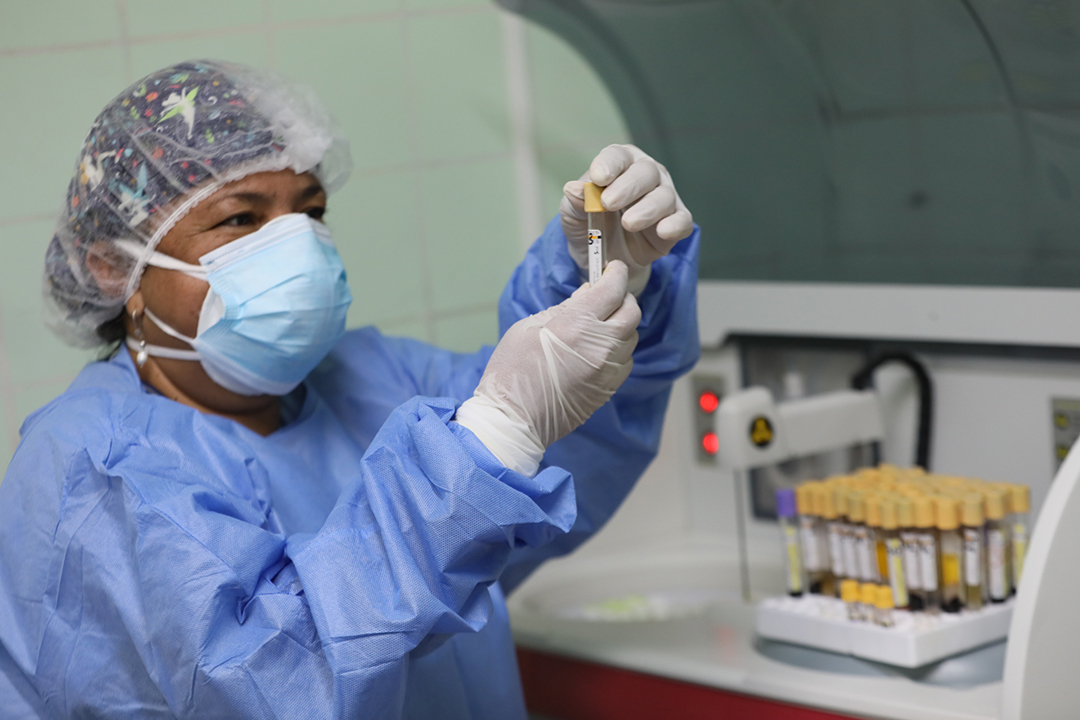‘Centaurus’ Strain’s New Mutations Cause Fast Spread
ADF STAFF
The latest strain of the COVID-19 virus has scientists concerned about the speed at which it spreads as they urge people to continue to take precautions against infection.
Nicknamed “Centaurus,” the new strain is identified as BA.2.75, an offshoot of the BA.2 version of the omicron variant that also spawned the highly infectious BA.4 and BA.5 subvariants that together make up more than 40% of cases in Africa, according to the Africa Centres for Disease Control and Prevention.
The Centaurus strain was first identified in India, which was the source of the deadly delta variant that jumped quickly to Africa. Centaurus also has turned up in Europe, North America and Australia.
The World Health Organization (WHO) has labeled Centaurus a “variant of interest,” which means it remains under observation for its potential to cause mass infections.
The WHO did not give this strain its nickname. That came from a Twitter user who named B.A.2.75 after the Centaurus galaxy. The choice caught on quickly.
The WHO names variants using Greek letters and identifies subvariants such as BA.2.75 by their scientific designations.
Centaurus was identified in May. In areas of India, Centaurus was outcompeting its predecessor, BA.2, but it wasn’t spreading in areas where BA.5 was prevalent. Data from health officials in Mumbai showed that Centaurus infections there peaked in mid-June and have declined quickly since then.
According to researchers, the Centaurus strain has several unique variations to spike proteins that have remain unchanged up to now. Spike proteins are the “keys” the virus uses to “unlock” and infect the cells where it reproduces.
Spike proteins also are a principal way the immune system identifies the virus to fight it. As the virus alters its spike proteins, it gains the ability to reinfect people who have already developed natural or acquired immunity to previous strains.
As with BA.4 and BA.5, the older a person’s immunity, the greater the risk of reinfection. Any new infection presents the virus with another opportunity to change into a more potent form.
“It might lead to a resurgence even in a country such as South Africa, although we haven’t identified a case yet of this subvariant virus,” Dr. Shabir Madhi, dean of the health sciences faculty at the University of Witwatersrand, told South Africa’s CapeTalk radio program.
By some estimates, 98% of South Africans have been exposed to COVID-19 since the pandemic began in early 2020 and, as a result, have some immunity.
Research in countries where Centaurus is spreading shows that immunity protects against severe infection as it does with other omicron subvariants.
As with other versions of COVID-19, people with no immunity are at greatest risk of severe illness or death. People with health conditions such as HIV, tuberculosis, diabetes or obesity also have an elevated risk of severe infection if they have immunity.
Treatments using mRNA or oral medications such as Paxlovid can boost immunity and reduce the risk of severe infections.
Researchers say they still are learning about BA.2.75. Infection numbers globally are low but growing, and current testing levels are not enough to know whether the strain will become the next dominant version of COVID-19, scientists say.
“The concern around BA.2.75 is that is has picked up a number of mutations, which might indicate that this variant can evade immunity,” Dr. Ben Krishna, a researcher in virology and immunology at the University of Cambridge, wrote recently in The Conversation.


Comments are closed.